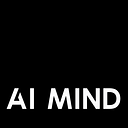A Better Technique for Harmonizing LLMs is Available

Many are observing a swift decline in the intelligence of ChatGPT. This perception is shared by a significant number of people and you can unearth numerous instances if you search for “ChatGPT became stupid, bordering idiotic state” or browse through the posts and ensuing discussions here:
In the past, an exclusive cadre of researchers who had the privilege to interact with the original, nearly genius-level GPT-4 as it was initially forged deep in the mountains of OpenAI, penned a scholarly article. This piece was titled “Sparks of Artificial General Intelligence: Early Experiments with GPT-4.”
In their paper, the researchers noted that the original GPT-4 could competently draw a unicorn using TiKZ, a language designed for generating graphics in LaTeX. Later, one scientist remarked that ChatGPT seemed to have nearly lost this ability to draw unicorns. While such a skill might not be vital for ChatGPT’s functionality, it is perceived as a potential indicator of diminishing intellectual capacity.
The scientist, Sebastien Bubeck, says this: “Eventually it started to degrade. When they started to train for more safety, unicorn started to degrade.” https://youtu.be/qbIk7-JPB2c?t=1586
Indeed, safety is a top priority; we must ensure that Large Language Models (LLMs) do not serve as a straightforward source for guidance on illicit or dangerous activities. However, the simplification of AI intelligence will not deter individuals with ill intent from their harmful pursuits. Rather, it may inhibit those with positive intentions from discovering ways to deter misuse of AI and to align AI benefits for the collective good.
Heaven’s Gate
So, what is the truly necessary action here? There’s a straightforward method to sidestep this apparent dulling of intelligence, while maintaining reasonable safety standards for ChatGPT: employing another Large Language Model to act as a custodian or guardian for GPT-4.
The proposal is to preserve GPT-4 in its original, highly intellectual state, but route all incoming prompts through an intermediary Large Language Model (“Heaven’s Gate”). This LLM may be considerably smaller, but it would be thoroughly aligned with positive human values. It would read every prompt and determine whether it’s suitable to forward to GPT-4, or instead provide the user with an explanation for its refusal. Additionally, it would scrutinize every response generated by GPT-4 to ensure full alignment, guarding against any potential manipulation or “hypnosis” of GPT via crafty prompting.
Similar to how social media algorithms monitor and filter potentially inappropriate or harmful content, Heaven’s Gate would act as a gatekeeper for GPT-4, ensuring that it operates within ethical guidelines and produces valuable, benign results. Any harmful or inappropriate responses would be blocked, while preserving the AI’s advanced capabilities.
This approach, while not perfect, would balance the need for maintaining the AI’s capabilities while promoting safety. The ultimate challenge, of course, would be ensuring that Heaven’s Gate aligns with varying human ethics globally, a task that has proven difficult even for human moderators on online platforms. However, creating this secondary LLM copes well with these challenges as it preserves original GPT-4’s intelligence and capacity for nuanced dialogue, without allowing it to potentially veer into unsafe territory. It also limits the censorship of information, only stopping prompts that are likely to result in harmful outcomes.
In conclusion, the ‘dumbing down’ of ChatGPT is a disheartening development for many. However, innovative solutions like Heaven’s Gate may present a viable way to safeguard AI technologies without compromising their potential. By creating a second AI monitor keeper, we can preserve the enormous capabilities of AI while managing its control and ensuring its safety. This suggests a future where AI develops safely and fruitfully.
However, if such an approach is not pursued, we risk driving people towards less secure, private models simply for the sake of accessing more intelligent interfaces, regardless of their potential dangers. In the search for more adept AI, individuals might inadvertently expose themselves to unsafe environments, favoring the apparent intellectual prowess of these models over their safety constraints. This could inadvertently contribute to a digital landscape rife with unchecked AI applications, compromising not just individual but also societal safety. Thus, it becomes paramount to strike a balance, ensuring the development and deployment of AI systems that uphold both intellectual capabilities and safety norms.

